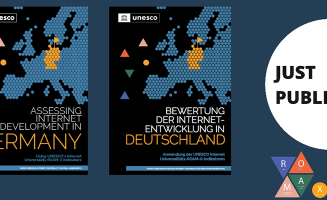Freedom of Expression on the Internet
UNESCO recognizes that the Internet holds enormous potential for development. It provides an unprecedented volume of resources for information and knowledge that opens up new opportunities and challenges for expression and participation. The principle of freedom of expression and human rights must apply not only to traditional media but also to the Internet and all types of emerging media platforms, which will contribute to development, democracy and dialogue.
UNESCO assumes its responsibility of promoting freedom of expression on Internet and related right such as privacy and has integrated it to its regular program. The Organization explores the changing legal and regulatory framework of Internet and provides member states with policy recommendations aiming to foster a conducive environment to freedom of expression and privacy on the Internet.
Following UNESCO 38th General Conference Resolution “CONNECTing the Dots: Options for Future Action” , the Organization therefore stands for the approach of Internet Universality, which is based on the R.O.A.M principles of Human-rights, Openness, Accessibility and Multistakeholder participation. These principles are essential to ensure an open, transparent and inclusive Internet worldwide.
In order to trigger a discussion on a wide range of issues related to Internet freedom at global, regional and national levels, UNESCO has organized a series of workshops in past WSIS Forum and Internet Governance Forum meetings since 2006. UNESCO is also publishing a Series on Internet Freedom that seeks to capture the complex dynamics of Internet Governance in a wide range of issues including privacy, hate speech, encryption, digital safety and journalism sources.
UNESCO is now developing Internet Universality indicators to help governments and other stakeholders to assess their own national Internet environments and to promote the values associated with Internet Universality.









